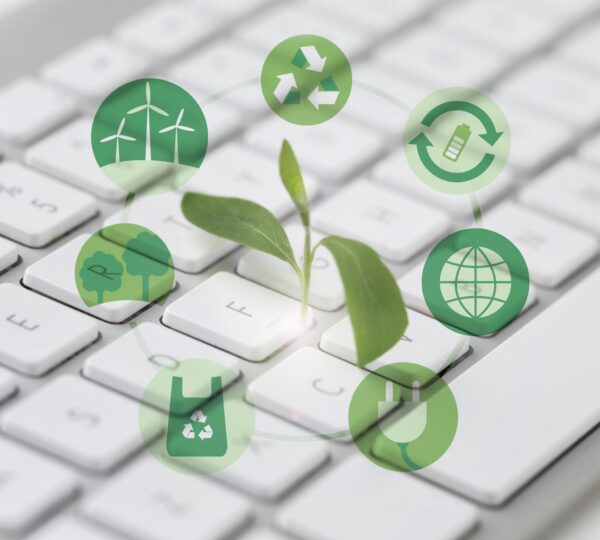
Environmental Activism for Busy People
One Tuesday morning, Ana was rushing out the door with her laptop bag in one hand and a half-eaten granola bar in the other. She passed the recycling bin in her apartment lobby and felt a pang of guilt. She knew she should be doing more for the planet. She had seen news about wildfires, floods, and plastic in the oceans, but between her job, family commitments, and endless to-do lists, where was the time to join an environmental protest or start a garden?
If this sounds familiar, you are not alone. Many people deeply care about the environment but feel overwhelmed by the idea of activism. The truth is, you do not need to dedicate your entire life to the cause to make a difference. Environmental activism for busy people is about small, intentional steps that add up over time.
Fun Fact: Did you know that if everyone reused a single plastic bag just ten times, it would save more than 2 billion bags each year? Small steps can scale into a massive impact when multiplied by millions of people.
Why Activism Looks Different Today
Traditional activism often evokes images of marches, rallies, or full-time volunteers. While those are still powerful, activism today also lives in everyday choices. Experts note that personal behavior shifts, social media advocacy, and consumer demand are equally important.
Dr. Ayana Elizabeth Johnson, marine biologist and climate policy expert, once said, “We do not need a handful of people doing sustainability perfectly. We need millions of people doing it imperfectly.”
This message is a relief for busy people. You can weave activism into your life without having to rearrange your schedule.
Everyday Activism for Busy People
Here are some practical, human-friendly ways to fit activism into your packed routine:

young african american traveler man holding air tickets smiling cheerfully positive and happy looking at camera standing over orange background
1. Vote with Your Wallet
You buy groceries, clothes, and household items anyway. Choosing sustainable brands is activism on autopilot. For instance, swapping your regular detergent for an eco-friendly one cuts down water pollution.
Tip: Use apps like Good On You or DoneGood to check brand ratings quickly while shopping.
2. Switch Search Engines
Eco-friendly search engines like Ecosia use ad revenue to plant trees. With over 20 million users, they have already planted more than 180 million trees worldwide. Just by searching the web for your busy life tasks, you are contributing to reforestation.
3. Digital Activism in Five Minutes
You may not have time to attend rallies, but you can sign petitions, share posts, or email representatives in less than five minutes. Organizations like Greenpeace and Earthjustice make it easy to join campaigns online.
Expert Insight: Research from the Pew Research Center shows that online activism has successfully pressured companies and governments to adopt more sustainable policies, proving that your voice matters even behind a screen.
4. Mindful Eating
You do not need to become fully vegan overnight. Simply having one or two plant-based meals a week can reduce your carbon footprint. The University of Oxford found that adopting a plant-forward diet can reduce an individual’s food-related emissions by up to 73 percent.
Tip: Busy? Try meal services that offer plant-based options or batch cook veggie dishes for the week.
5. Commute Smarter
If you cannot bike to work daily, even carpooling once a week or taking public transit when convenient reduces emissions. If you work remotely part-time, consider that an eco win too.
Fun Fact: Skipping just one 20-mile car commute per week prevents nearly 1,000 pounds of carbon emissions per year.
6. Micro Donations, Macro Impact
Set up automatic small donations to environmental organizations. Even $5 a month to a group like 350.org or Rainforest Trust helps sustain vital work. It is activism that happens while you sleep.
7. Bring Activism to Your Inbox
When you unsubscribe from unnecessary emails, you are reducing data center energy use. According to the Carbon Literacy Project, if every adult in the UK deleted 10 old emails, it would save 1,725,000 gigabytes of storage, cutting energy waste. Who knew inbox cleaning could be activism?
Busting the Myth: A common barrier is eco guilt — the feeling that if you cannot go zero waste, drive an electric car, and eat perfectly sustainable meals, then your efforts do not matter.
But environmental psychologist Dr. Renee Lertzman explains that guilt often paralyzes people. She encourages focusing on progress, not perfection: “The small things matter, not because they solve the crisis alone, but because they shift how we think and engage.”
Fun Facts
- Recycling one aluminum can saves enough energy to power a laptop for 5 hours.
- If every household in the U.S. replaced one regular lightbulb with an LED, the energy saved could power 3 million homes for a year.
- A single mature tree can absorb more than 48 pounds of carbon dioxide per year.
Tips to Stay Motivated
- Pair Activism with Habits You Already Do: Listen to eco podcasts while commuting, or keep a reusable bag in your car so you never forget.
- Track Small Wins: Apps like JouleBug make sustainability fun with challenges and points for eco actions.
- Find Community Online: Join groups on Facebook or Reddit for busy but eco-conscious people. Sharing tips keeps you inspired.
- Celebrate Progress: Reward yourself when you hit milestones like a month without disposable coffee cups.
Expert insights: Katharine Hayhoe, climate scientist, says, “The single most important thing you can do to fight climate change is talk about it.” Conversations matter, even quick chats with friends, colleagues, or family.
Leah Thomas, founder of Intersectional Environmentalist, emphasizes that activism can be inclusive and flexible: “Your activism can be as unique as your schedule. It might look like choosing sustainable banking or sharing resources with your network.”
A Quick Activism Checklist for Busy Lives
- Switch to an eco-friendly search engine
- Eat plant-based or twice a week
- Carry a reusable bottle and coffee cup
- Sign one petition a month
- Carpool, bike, or use public transport occasionally
- Set up automatic donations to a green nonprofit
- Reduce digital clutter for lower energy use
You may only spend 10 minutes a week, but multiplied across millions of people, it creates real systemic change.
Conclusion
Her story shows us an empowering truth: You do not need more hours in the day to care for the planet. You just need small acts, repeated often, that fit into your unique life.
References
- U.S. Environmental Protection Agency (EPA). (2022).
- Oxford University. (2018).
- Pew Research Center. (2021).
- Carbon Literacy Project. (2021).
- Ecosia. (2023).












